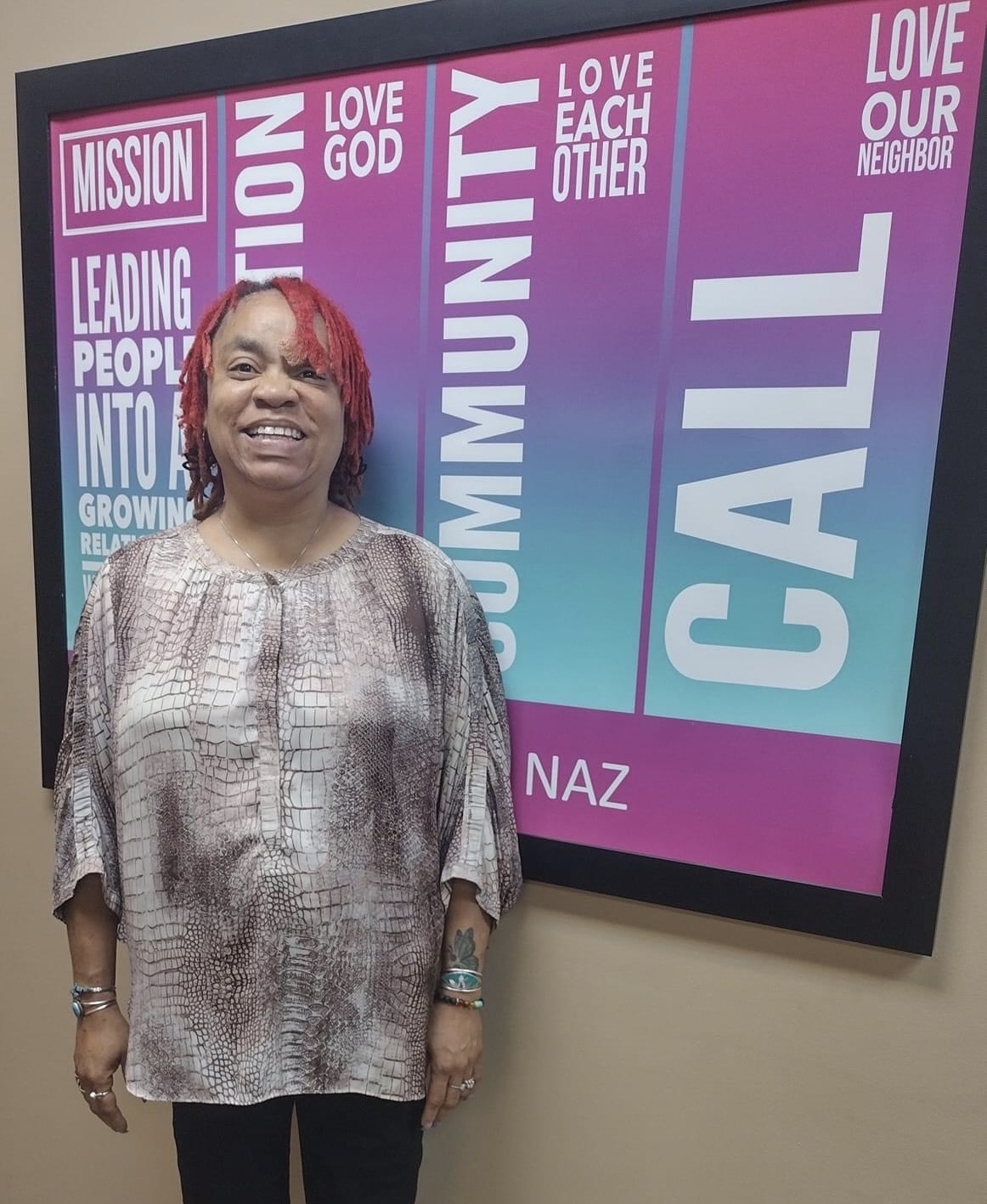Kandice Hairston’s words filled a dimly lit room in the Newark Center of Civic Engagement.
“You have to be honest with yourself and those around you,” she told a group of women from Lancaster, Newark and Zanesville huddled around a table and couch, “if you want to be on the path to recovery successfully.”
She spoke life into the room, telling her audience what it means to “surrender to addiction,” while they shared vulnerable moments and memories of their own experiences surrendering to recovery.
“That’s the hardest part: You have to keep coming back,” Hairston told them. “Put one foot in front of the other, and be open-minded.”
For Hairston, honesty has been central to her recovery from substance use disorder, and sharing that honesty with others has helped her build a community of support.
“I’m building my support system. I’m meeting other women that I might be able to help or relate to,” she said. “They say honesty, open-mindedness, and willingness — those are the houses of the program, be honest with yourself.”
Hairston has been running a women’s support group since 2013, shortly after her grandmother died. About 15 women come every week to talk about the struggles of navigating addiction recovery. It’s important to Hairston to create a safe space for women to feel vulnerable and rely on each other.
She begins every meeting by passing out bright orange pamphlets filled with vital information about community resources that are at their disposal. In addition to that, there is a space on the back where people can gather numbers of other individuals. The pamphlet serves as a reminder to those who attend that familiar faces, kind voices and support are only a call away when they need it most.
“I heard someone describe [addiction] as a 2,000-pound gorilla outside your door, and if you don’t put on your right armor before you open the door, he’s gonna get you,” Hairston said. “You got to have your armor on.”
When Hairston was arrested in 2008 for trafficking crack cocaine and 2 counts of permitting drug abuse, she knew she was going to jail.
She had already been twice before so she knew what was coming. But this time, her children Isis & Pharahn, were old enough to understand what was happening.
“I went to the county jail [and realized], ‘You know what, it’s time for me to surrender. You’re not just a drug dealer, you’re a drug user, you’re an addict,’” she said. “And that’s a hard thing to get with.”
She focused on her faith, read the bible, watched Christian programming every morning — praying for a second chance, praying to not go to prison, praying to access treatment.
But Hairston was sentenced to three years at Ohio Reformatory for Women in Marysville. While waiting to be transferred to prison, Hairston dreamed about a room in a place she had never been in before, a room with bright colors on the walls, she said.
In prison, Hairston was introduced to a program called Tapestry – a 15-month intense behavior modification treatment program that offers treatment and rehabilitation to women in prison who have substance use disorder – and decided to check it out.
When she arrived at the program’s headquarters, it was in a room that looked just like the one from her dream.
“I fell to my knees,” Hairston said. “I could not believe it. Everybody was looking at me and I was like, ‘Where do I sign up?’”
Hairston stayed in the program for 17 months, taking every class the program had to offer. To achieve sobriety, she believed she had to put in the work herself.
“The only rehabilitation and correction you’re gonna get is if you are willing to correct yourself and rehabilitate yourself,” she said. “And I can tell you that it’s an ongoing journey. Recovery is a journey, not a destination. I would never be ‘recovered.’ It’s never past tense.”
Today, Hairston celebrates 15 years and counting of sobriety, serving as a sponsor and a shining light in her community. She currently works at St. Vincent De Paul’s thrift store in Newark, and is bold in sharing her inspiration for recovery.
“Embarrassed, shy, coy – those aren’t words used to describe me,” she says.
Hairston is energetic, bubbly, and fiery – almost as fiery as her beautifully dyed locks. She sees herself as a messenger for recovery. She said she has flipped the skillset she crafted while using and running the streets for good. She’s a resource for others.
Now, she said, she points others in the right direction.
“Don’t kill the messenger,” Hairston said. “Just get the message.”
If you or someone you know is struggling or in crisis, help is available. Call or text 988 or chat at 988lifeline.org. To learn how to get support for mental health, drug or alcohol issues, visit FindSupport.gov. If you are ready to locate a treatment facility or provider, you can go directly to FindTreatment.gov or call 800-662-HELP (4357).
Naloxone is available through Harm Reduction Ohio, Newark Homeless Outreach, and Licking County Health Department.

